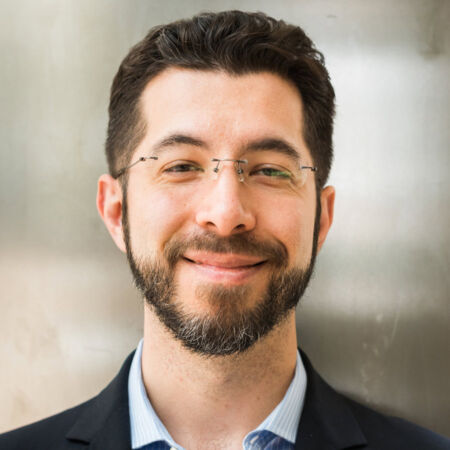Ed Boyden, PhD

Ed Boyden is a professor of Biological Engineering and Brain and Cognitive Sciences at the MIT Media Lab and the MIT McGovern Institute.
He leads the Synthetic Neurobiology Group, which develops tools for analyzing and repairing complex biological systems such as the brain, and applies them systematically to reveal ground truth principles of biological function as well as to repair these systems. These technologies include expansion microscopy, which enables complex biological systems to be imaged with nanoscale precision, and optogenetic tools, which enable the activation and silencing of neural activity with light, amongst many other innovations. He co-directs the MIT Center for Neurobiological Engineering, which aims to develop new tools to accelerate neuroscience progress.
Ed may be best known for pioneering the development of optogenetics, a powerful method that enables neuronal activity to be controlled with light. He also led the team that invented expansion microscopy, in which a specimen is embedded in a gel that swells as it absorbs water, thereby expanding nanoscale features to a size where they can be seen using conventional microscopes. He is now seeking to systematically integrate these technologies to create detailed maps and models of brain circuitry.
Amongst other recognitions, he has received the Breakthrough Prize in Life Sciences (2016), the BBVA Foundation Frontiers of Knowledge Award (2015), the Carnegie Prize in Mind and Brain Sciences (2015), the Jacob Heskel Gabbay Award (2013), the Grete Lundbeck Brain Prize (2013), the NIH Director’s Pioneer Award (2013), the NIH Director’s Transformative Research Award (three times, 2012, 2013, and 2017), and the Perl/UNC Neuroscience Prize (2011). He was also named to the World Economic Forum Young Scientist list (2013), the Technology Review World’s “Top 35 Innovators under Age 35” list (2006), and is an elected member of the American Academy of Arts and Sciences (2017).
His group has hosted hundreds of visitors to learn how to use new biotechnologies, and he also regularly teaches at summer courses and workshops in neuroscience, and delivers lectures to the broader public (e.g., TED (2011); TED Summit (2016); World Economic Forum (2012, 2013, 2016)). Ed received his Ph.D. in neurosciences from Stanford University as a Hertz Fellow, where he discovered that the molecular mechanisms used to store a memory are determined by the content to be learned. Before that, he received three degrees in electrical engineering, computer science, and physics from MIT. He has contributed to over 400 peer-reviewed papers and granted/pending patents, and has given over 400 invited talks on his group’s work.
Graduate Studies
Undergraduate Studies
Awards
2006, TR35, MIT Technology Review
2006, Hertz Thesis Prize, Fannie & John Hertz Foundation
2007, Director’s New Innovator Award, National Institutes of Health
2008, Sloan Research Fellow, Alfred P. Sloan Foundation
2011, CAREER Awards Search, National Science Foundation
2012, 2013, 2017 Director’s Transformative Research Award, National Institutes of Health
2013, Director’s Pioneer Award, National Institutes of Health
2016, Breakthrough Prize in Life Sciences, Breakthrough Prize
2017, Member, American Academy of Arts & Sciences
2017, Fellow, National Academy of Inventors
2019, Rumford Prize, American Academy of Arts & Sciences
2018, Canada Gairdner Award, Gairdner Foundation
2018, Investigator, Howard Hughes Medical Institute
2019, Member, National Academy of Sciences
2019, Warren Alpert Foundation Prize, Warren Alpert Foundation Prize
2019, Lennart Nilsson Award, Lennart Nilsson Award Foundation